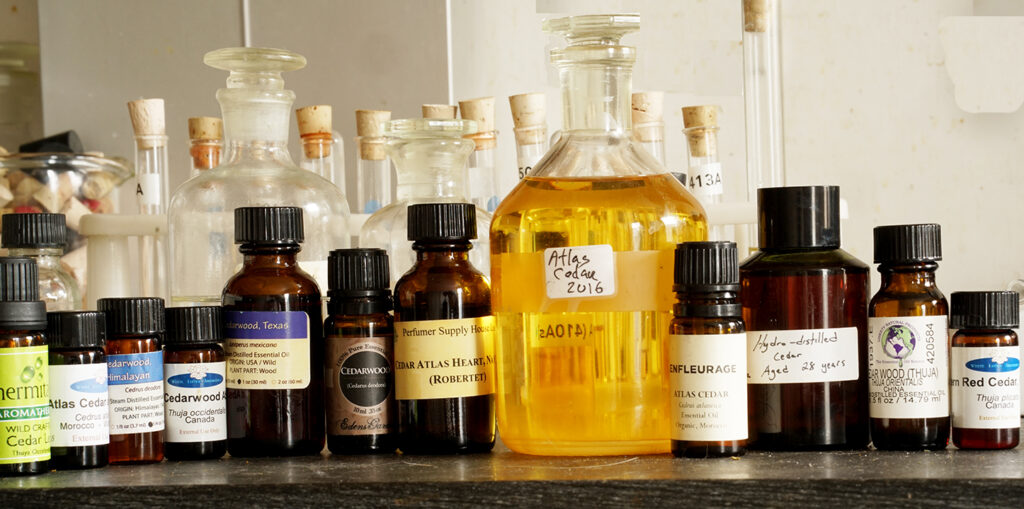As a child, I used to press my nose against the inside of my grandmother’s cedar-lined chest. It smelled of the Orient, as we called it then, of ships and harbors and of China.
Despite having since survived the assault of cheap “cedar-scented” cleaning products, my memory of that beautiful Chinese chest remains intact.
Maybe because it’s relatively inexpensive, cedar is less often discussed than, say, sandalwood. In addition to lending aromatic support to woods, herbs and florals, cedar oils make excellent fixatives. While more often distilled into an essential oil, cedar may also be extracted with hexane (essentially, gasoline). The hexane is then evaporated off, leaving behind a “concrete,” which is then extracted with ethanol. The ethanol is boiled off in a vacuum, leaving behind the absolute. The essential oil, deeply reminiscent of the wood, is much different than the black and sticky absolute, the pine- and candy-like notes of which are cloyingly sweet to some, delicious to others. When used with discretion, cedar absolute is great for fleshing out delicate florals.
I dug out my collection of cedar oils and absolutes and discovered cedar leaf oil which is also called thuja. This confuses me because I also have a bottle of cedar essential oil from China, that is subtitled “Thuja.” Steffen Arctander, the go-to authority on perfumery ingredients, describes cedar essential oil as blending well with other pine or fir oils as well as citrus, lavender and rosemary. It is used in classic fougère perfumes which contain lavender. To me, it smells stronger and less woody than other oils in my collection. It has a juniper note and a not-unpleasant volatile solvent quality.
In addition to the cedar leaf, my collection includes white cedar absolute, which is like rich and sweet confectionary. Virginia cedar smells like pencil sharpener. Texas cedar is similar, but also has a kind of boozy aroma as though someone had doused it in whiskey. Western red cedar is deep and complexly woody. It’s drier than the others. My thirty-year old cedar Atlas has a bright refined smell that reminds me of sandalwood. It doesn’t smell like sandalwood, but it has some of that same smoothness. Arctander suggests associating cedar oil and absolute with boronia absolute (good luck), as well as labdanum products and “woody-floral” aromas.
